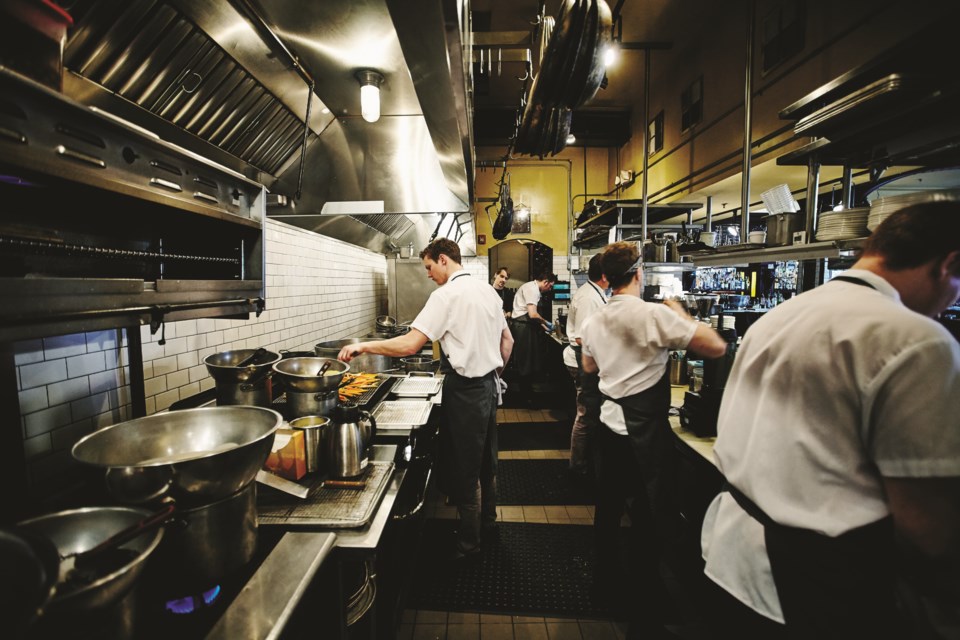An October report from the Canadian Centre for Policy Alternatives put a fine point on a longer trend for the food-service sector that anyone with eyes and an appetite in Whistler shouldn’t be shocked by: food workers are leaving the industry in droves and they’re not likely to come back anytime soon.
Countering the narrative that restaurant servers and cooks were wiling away the pandemic on government aid, the report found that, by February 2021, a quarter-million employees in Canada who used to work in food and accommodation had found jobs outside the sector, many of them in better-paying professional positions.
Employment in food services is now 14.8 per cent below pre-pandemic levels, although even before COVID-19 hit, the industry was experiencing ballooning worker shortages.
The impact is even more acute in a tourism hub like Whistler where food and hospitality are key pillars of the resort economy, compounded by the mass exodus of foreign workers at the start of COVID lockdowns.
“It’s eroding our workforce. It’s eroding our industry—everything. It’s making people not want to work in the industry,” Restaurant Association of Whistler president and Alta Bistro co-owner Eric Griffith told Pique in an interview last month about the latest round of health restrictions. “We plan to take the whole winter to find [staff for summer]; we think it’s going to take us three or four times as long to find the people we need right now.”
Ottawa is planning to streamline the federal temporary foreign worker program’s processing time down to two weeks, which, in the short term at least, should help quell some of Whistler’s staffing headaches. But for an industry not exactly known for being worker-friendly, it’s clear the problem is just as much cultural as it is economic.
As previously reported in Pique, a 2020 study by the B.C. Restaurant and Foodservices Association released just weeks before the pandemic hit pinned a growing lack of qualified workers in the industry primarily to its reputation for long hours and low pay, as well as an outdated culture that persists in many kitchens. The report also suggested that chefs and cooks already employed in the industry aren’t recommending the profession to their peers, only exacerbating the gap.
Presumably because of the strong pull of the mountain, not to mention the leverage gained by local workers as the resort’s labour crisis has worsened, many Whistler businesses have long emphasized a healthy work-life balance—the so-called 20-centimetre rule being a prime example.
But there’s no denying businesses operating on such razor-thin margins must feel some pressure to stretch out their already thinned staff to its full capacity, inarguably all the more common in the cutthroat world of fine dining. Case in point: Quang Dang, former executive chef at Araxi, who told Montecristo Magazine in September about burning out three years ago after working 50-odd consecutive days in a row as the award-winning restaurant dealt with its own staff shortage, including an executive sous chef off with a broken foot.
“You put a lot of pressure on yourself to make things happen. That’s naturally what chefs do. Everyone has a limit, and I pushed it too far,” Dang told the magazine, noting how he suffered a hemorrhagic stroke that led him to leave the industry for a time.
The pandemic has had the unintended benefit of thrusting these longstanding issues into the spotlight. Dalhousie University’s Agri-Food Analytics Lab declared “the rise of the food worker” as the third-biggest food story from 2021. Workers in the industry have leveraged the public’s burgeoning sympathy into higher wages and better benefits as many Canadian food manufacturers such as Olymel, Exceldor and Cargill looked to avoid labour disputes and make the sector more attractive.
But for an industry that is bleeding workers faster than it can keep up, it’s going to take more than just a pay hike and more vacation days to drive lasting change.




